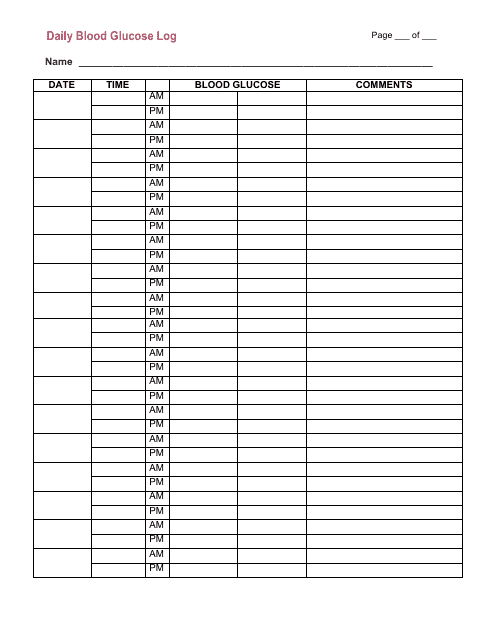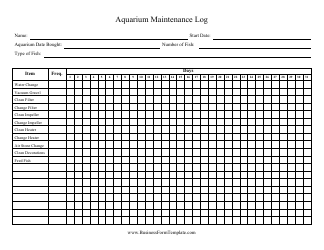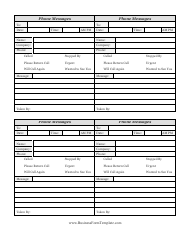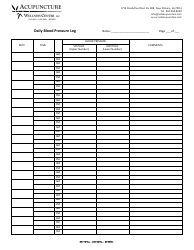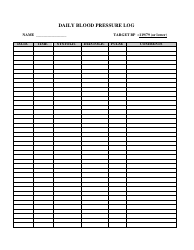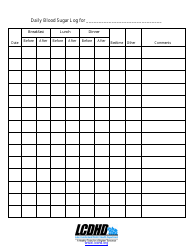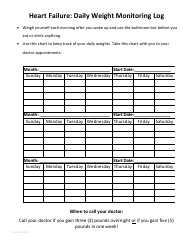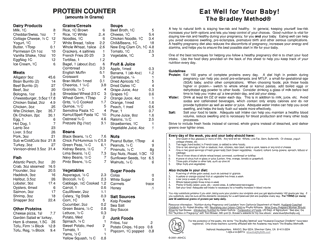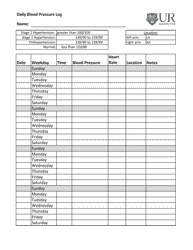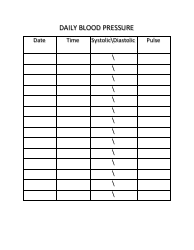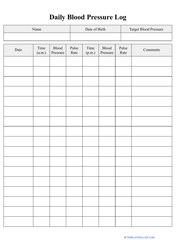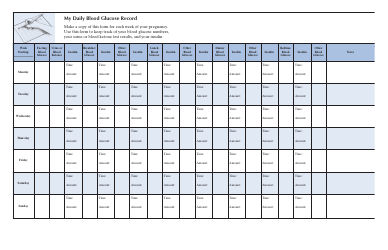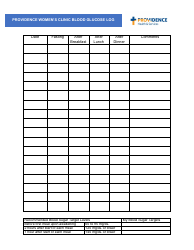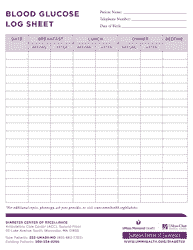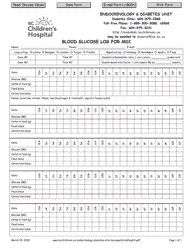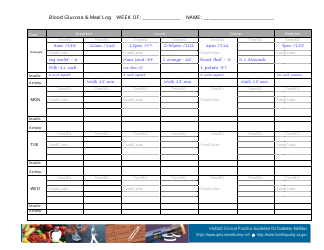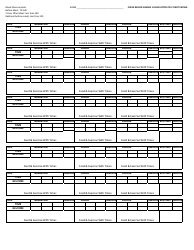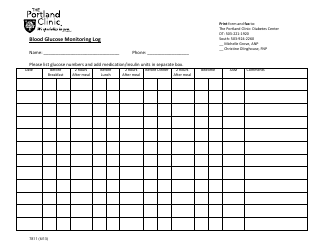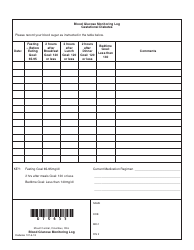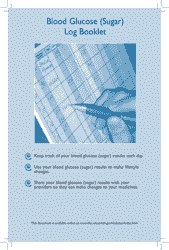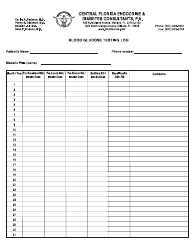Daily Blood Glucose Log
A Daily Blood Glucose Log is a useful tool for people with diabetes to track and monitor their blood sugar levels. It helps in managing the condition more effectively. Individuals log their glucose readings at different times of the day, which can offer insights into how dietary choices, activities, and medications are influencing their blood sugar levels. Doctors and healthcare professionals may also refer to this log to make or adjust treatment plans. It can promote better blood sugar control and help prevent diabetes-related complications.
The Daily Blood Glucose Log is typically filed by individuals who have diabetes. They record their blood sugar levels throughout the day to help monitor their condition and ensure that they are maintaining appropriate glucose levels. This log can be shared with healthcare professionals to aid in ongoing treatment decisions. It's important to note that not only people with diabetes may need to monitor their blood glucose level, but also pre-diabetic, gestational diabetes patients or any other condition that results in high or low blood sugar.
FAQ
Q: What is a daily blood glucose log?
A: A daily blood glucose log is a chart or journal where you can record your blood sugar levels throughout the day. It's often used by individuals with diabetes to manage their condition and keep track of their glucose levels to help doctors make necessary adjustments to their treatment plans.
Q: Why is a daily blood glucose log important?
A: A daily blood glucose log is important as it helps to monitor your sugar level trends over time, recognize patterns and understand how food, exercise, and medication influence blood sugar levels. This information can be useful for managing diabetes more effectively and meeting your blood sugar goals.
Q: How to maintain a daily blood glucose log?
A: To maintain a daily blood glucose log, you typically record the date, time, and your blood sugar readings. You might also note additional information like what you ate, how much physical activity you got, and how you're feeling. This can help you see what affects your blood sugar levels.
Q: Who should keep a daily blood glucose log?
A: Those with diabetes or pre-diabetes, or individuals who have been advised by their healthcare provider to monitor their blood sugar levels, should keep a daily blood glucose log.
Q: What should I include in my daily blood glucose log?
A: In your daily blood glucose log, include date, time, pre and post-meal blood sugar readings, insulin or other medication doses, type and duration of physical activity, foods you've eaten and your general feeling or health status.
Q: How often should I update my daily blood glucose log?
A: How often you should update your daily blood glucose log depends on your specific situation and your healthcare provider's advice. Early in your treatment, you may need to measure and log your blood glucose four or more times a day. As your condition becomes more stable, you may only need to log it once or twice a day.
Q: Can a daily blood glucose log help in controlling my blood sugar?
A: Yes, a daily blood glucose log can help you understand patterns and trends in your blood sugar levels, assisting you in better managing your diabetes. The data can guide decisions about food, physical activity, and medication, helping to control your blood sugar levels.
